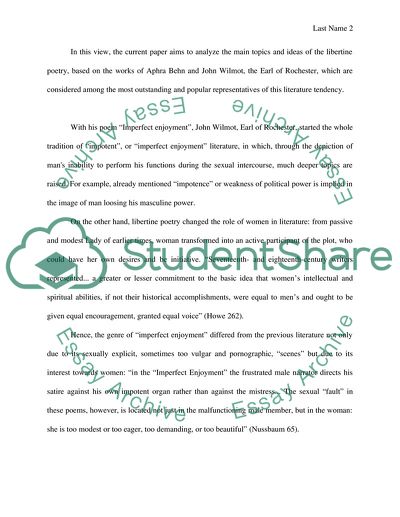Cite this document
(“Aphra Behn and John Wilmot, Second Earl of Rochester Essay”, n.d.)
Retrieved from https://studentshare.org/literature/1668288-aphra-behn-and-john-wilmot-second-earl-of-rochester
Retrieved from https://studentshare.org/literature/1668288-aphra-behn-and-john-wilmot-second-earl-of-rochester
(Aphra Behn and John Wilmot, Second Earl of Rochester Essay)
https://studentshare.org/literature/1668288-aphra-behn-and-john-wilmot-second-earl-of-rochester.
https://studentshare.org/literature/1668288-aphra-behn-and-john-wilmot-second-earl-of-rochester.
“Aphra Behn and John Wilmot, Second Earl of Rochester Essay”, n.d. https://studentshare.org/literature/1668288-aphra-behn-and-john-wilmot-second-earl-of-rochester.


